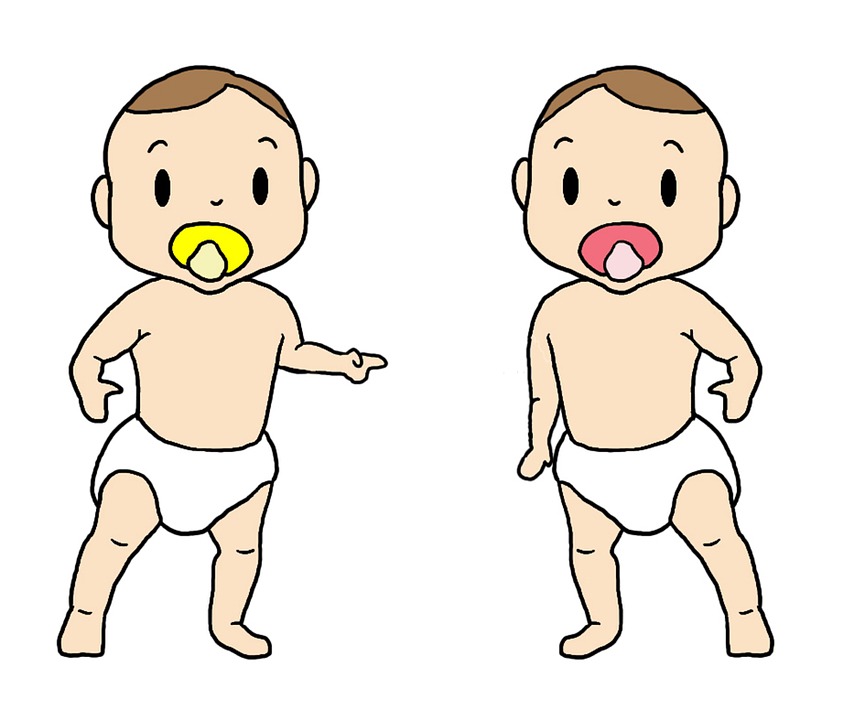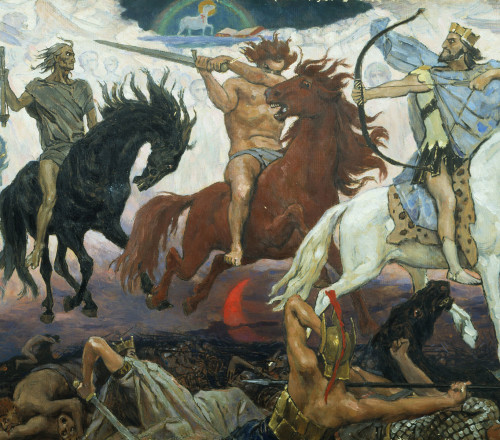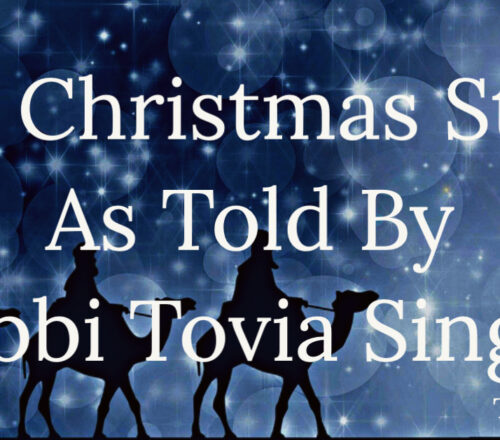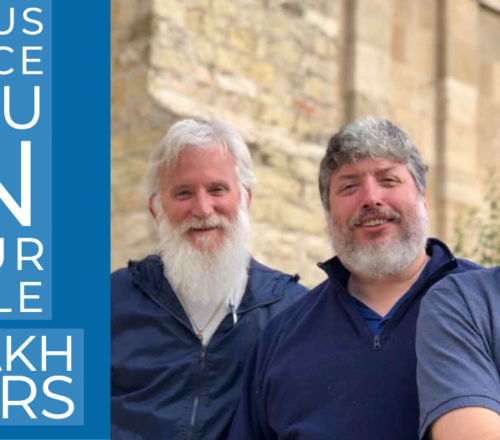Dual Fulfillment Prophecy & the Virgin Birth – Rabbi Tovia Singer
So all this was done that it might be fulfilled which was spoken by the Lord through the prophet, saying: “Behold, the virgin shall be with child, and bear a Son, and they shall call His name Immanuel,” which is translated, “God with us.” – Matthew 1:22-23






This is just a Jew trying to discount a the Christian faith. I love the Jews but Tovia is being ridiculous.
The word almah is always used in the Tanakh to mean a young unmarried woman, which of course means a virgin. The word almah is never used to describe a married woman. No one reading the Tanakh would think anything else, certainly not in a God given sign. If the young woman is not a virgin then this is not a sign. There is nothing special at all if she is not. Isaiah told Ahaz to ask anything in the depth or height. He is telling Ahaz to ask for something supernatural. Why would the sign chosen by God not also be supernatural? As for the sign being that the young man eats Butter and Honey? That’s not a sign. Tovia is straining at a gnat. His explanation that almah does not mean virgin is of course absurd. Of course almah can be virgin and most likely does. It would actually be an enormous stretch to think it does not mean virgin.
a young unmarried woman could also be a widow or a divorcee..therefore
NOT a VIRGIN
To David Fischer,
I will give you the benefit of the doubt that it is not lack of intelligence that led to your weak and very flawed reasoning but rather basic ignorance, so, please let me educate you both in fact and in dialectics:
The concept of supernatural, immaculate conception is something that never before happened until the birth of Jesus, according to Christian theology, and will never happen again. Therefore, there is absolutely no question, from a logical standpoint, that the Tanach would have used the ONE unequivocal word in Hebrew that means “virgin” if that is what it meant, to describe such an event, and that is the word “Besulah.” This is especially true since Isaiah used the term Besulah FIVE times throughout the book of Isaiah (23:4; 23:12; 37:22; 47:1; 62:5) in its correct context, so, it is certainly a term that would have been employed here, had he desired to indicate the revolutionary concept of virgin birth, rather than an ambiguous term, almah!
The word “almah” simply means “young maiden” and does not connote anything relating to her sexual status, merely her age. Surely you know of many young maidens who have given birth both in and out of wedlock! In fact, where the word “almah” is employed by King Solomon in Proverbs (30:19-20) regarding an adulterous woman. He explains that once this woman “eats” (a metaphor for her fornication), she leaves no trace of her sexual infidelity (had she been a virgin she would have left a blood stain), but merely “wipes her mouth,” (washes herself) and says, ‘I have done no wrong.’” The word almah, here, clearly does not mean a virgin, but actually refers to an unchaste, sexually experienced woman.
As for the context of Isaiah, chapter 7, King Ahaz did not yet know his wife was pregnant. The Prophet informed him that his young wife would bear a child, that he would be unique in that he would only eat sweet foods such as honey and curds and that this tendency to desire only the sweet and good and be disgusted over the bad would actually influence his spiritual nature (his father King Ahaz was an evil idol worshipper), or it is referring to the fact that his son would be born in a time in which the land flourished materially, symbolized by a land of “milk and honey”( the basic symbol of material abundance found in the Torah, describing the land of Israel) whereas the kingdom of Judah, at that time, was barren and not fertile. So yes, these and others mentioned in the chapter are ALL clear signs from the Prophet, ALL fulfilled during King Ahaz’s reign.
Regarding your statement that Isaiah asked Ahaz to choose a supernatural sign to prove that his prophecy from G-d was true, Ahaz EXPLICITLY REFUSES to request ANY sign in order that G-d’s name NOT be glorified, since he was evil, as mentioned above. Therefore, the prophet told him simply, by force, G-d would provide some signs of the truth of his prophecy, but not anything beyond the laws of nature, which he refused in his arrogance and apostasy (It obviously would have been meritorious for King Ahaz for G-d’s name to have been glorified through him by some supernatural event, but an apostate such as Ahaz, who denied G-d, was unworthy of receiving any eternal merit).
So, in short, if you choose to retain your misguided religious beliefs, that is your prerogative. But, there is absolutely NO logical or spiritual basis for them to be found in the Five books of Moses or the Canon of the Prophets, given to the Jewish People.
And, in so much as I have chosen to comment, let me offer another, more general query to those who misinterpret and misquote the Jewish Bible for their own purposes. Is there any parallel among organized religions where one group denies the authentic tradition of another, usurping their scripture to buttress their own belief system? Could you imagine the outrage of the Hindus or the Christians if the Moslems taught that the Bhagavad Gita or the New Testament should be interpreted differently, proving the truth of their prophet Mohammed and the Koran or the outrange of the Buddhists if the Hindus taught that the Sutras of Buddhism were not valid for Buddhists but rather were actually professing the truth of Hinduism? In a culture today where a western, Caucasian woman who dons a traditional Chinese dress because she thinks it is attractive is accused of racism and coopting another group’s culture, what can Christians possibly answer in defense after they have co-opted and misrepresented Hebrew scripture, which is not their tradition, and fashioned it into their own version of religion for close to two thousand years? And yes, I emphasize that the Tanach is NOT the Christian tradition.
The Torah was given to the Jewish people exclusively (although it was offered but refused by all the nations of the world) along with an oral tradition passed down to the Prophets who directed their words at the Jewish people to rebuke, console and communicate to them from G-d. We are “the People of the Book” who have maintained both this Written and Oral tradition unbroken for over 3,500 years. We have that tradition directly from G-d, given to Moses and the Jewish people and witnessed by millions of individuals at Sinai. The Christians have the “New Testament.” If they wish to believe that as a true revelation, it is there prerogative, but it has no connection to the Torah, and deviates from it radically in both law and theology.
Regardless of the sincere zealousness of those who promulgate such “shoe-horn” theology, where its adherents take out of context, mistranslate and totally misinterpret verses in order to achieve their theological goals, it, perforce, is driven from an underlying belief that another religion is invalid, unfulfilled, incomplete or, G-d forbid, rejected, and therefore its content is ripe for the picking, abusing and nullifying its traditions through pseudo-intellectual analyses and offered to the unlearned masses as “gospel.” It is nothing more than a subtle, institutional callousness and arrogance, akin to the “institutional” racism and conscious or subconscious bias against people of color that some claim still plagues American society. There is no place for it in support of ANY religion and only goes to prove the falsehood of that tradition which bases its belief on such usurpation.
Ok I’ll say it….French snails are escargot. S…car…go